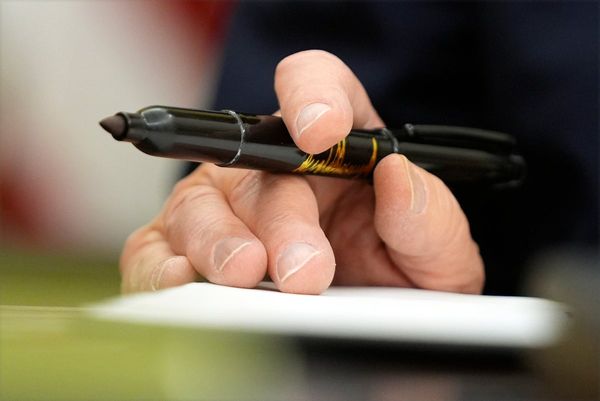
You scratch my back, I’ll scratch yours
In what might prove to be one of the most optics-blind corporate appointments of all time, former AFL CEO Gillon McLachlan has taken a new job as the chief executive of Tabcorp, one of the biggest gambling companies in Australia, on an annual salary of $1.5 million.
It comes just a year after McLachlan, in the final throes of his term as chief executive of the country’s biggest sporting league, admitted there were too many sports gambling advertisements in Australia.
“I think there is probably too much … I just think the volume is too much. It’s in your face,” McLachlan told Melbourne’s 3AW last year.
As CEO of the AFL, McLachlan oversaw Tabcorp’s loss of the AFL’s official wagering rights to BetEasy (now Sportsbet) which dominates the Australian online betting market. The rights were bought for $6 million — 12 times what Tabcorp had paid. This is on top of a number of other betting-based revenue sources for the AFL. Last year, a Four Corners report revealed that the AFL rakes in approximately $30-40 million a year from bookmakers as part of “product integrity fees”, a commission arrangement with bookmakers that sees sporting leagues profit off Australians gambling on their games.
It highlights the uncomfortable closeness between the sporting industry and gambling companies, particularly when the likes of Sportsbet run ads with former players (and current pundits) that promote losing bets.
One former AFL player told Crikey McLachlan’s appointment was “one of the most heinous examples of ‘you scratch our back, we’ll scratch yours’ that [they] had ever seen”.
One wonders what McLachlan thinks these days of the saturation of gambling ads during prime time hours. Perhaps he’s less aware, given his home state of South Australia bans such ads.
Diplomatic blushes
Li Qiang’s visit to Australia, the first by a Chinese premier in seven years, can hardly be called uneventful.
Li had lunch with a group of Australian ministers in Adelaide on Sunday. The entree, as pointed out by The Sydney Morning Herald’s Matthew Knott on X, was southern rock lobster. Following a deterioration of bilateral relations between Australia and China in 2020, a number of trade barriers were imposed by China, including for lobster, a trade worth $700 million prior to the halt. Lobster remains one of the only items with a trade barrier in place.
Li was then greeted by Anthony Albanese in Parliament’s Great Hall — only for the prime minister to accidentally use Li’s late predecessor’s name, referring to “his excellency, premier Li Keqiang”.
Adding to the stew of diplomatic tension, Sky News journalist Cheng Lei found herself physically blocked by Chinese officials during a media event featuring Albanese and Li. Chinese officials refused to move out of Cheng’s way while she worked the event, leading to an Australian journalist offering to swap places with her. Another Chinese official then attempted to block her again, before a government staffer intervened. Cheng was only released from detention in China late last year, three years after being arrested on tenuous national security grounds.
“It was entirely inappropriate and it was rude what occurred,” Albanese told Perth radio station 6PR.
“[Cheng] has every right to have been there and to fully participate and she did.”
Vested interests
Much has been made, including in Crikey’s pages, of the incendiary column in The Australian last week by contributor Francis Galbally that likened the Greens to the Nazis and Adam Bandt to Adolf Hitler.
Despite the article’s incoherence, Media Watch host Paul Barry managed to make enough sense of it to tear into the broadsheet on Monday night, calling the piece a “new low for a once-proud paper, and an absolute disgrace”.
Amid the outrage, a tipster alerted us to an unnoticed element of the column. Galbally is the owner and chair of a cybersecurity firm called Senetas, which itself owns an Israeli security outfit called Votiro. Votiro, per its CEO, services “most” Israeli government departments.
This may go some length to explaining Galbally’s views on the war in Gaza — but when Crikey approached The Australian with questions, the paper was silent. Crikey asked whether it was aware of Galbally’s business interests prior to publication, and whether it considered them a relevant element to disclose in the column. The Australian did not respond for comment.







